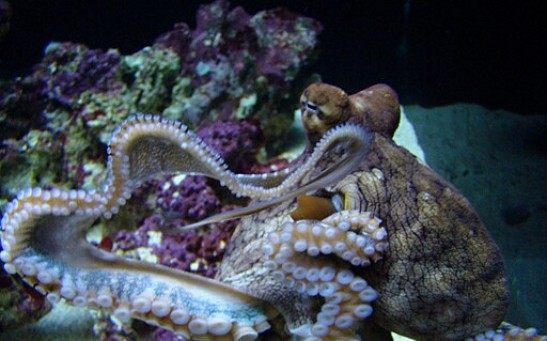cephalopod

3 Animals That Are Deaf or Earless, But Have Unique Ways To Survive
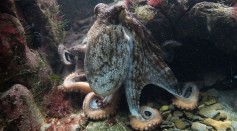
Do Octopuses Get Nightmares? Footage Reveals the Creature Thrashing, Getting Jolted Out of Peaceful Sleep
Bizarre 'Ghost Octopus' Baffled Scientists: What Is This Ghostlike Cephalopod?
‘Muscular Suckers’ That Are Neither Squids Nor Vampires Revealed in New Analysis

Cholesterol, Steroid Hormone Increase Responsible for Bizarre Deaths of Maternal Octopus After Laying Eggs

Giant Squid Bigger Than a Toddler Washed Ashore in Cape Town After Similar Massive Creature Was Spotted in Japan
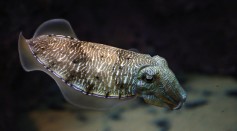
Like Cuttlefish; Squids Can Apparently Camouflage Like Their Cephalopod Relatives; Recent Study Says
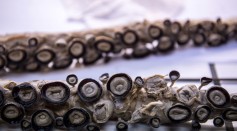
Strawberry-Colored Weird-Eyed Squid Spotted in Twilight Zone, California
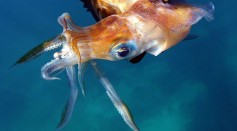
10-Armed Extinct Squid-Like Creature Named After President Biden; New Species an Ancestor of Octopus

Rare Giant Squid's Hunting Behavior Caught in Camera for the First Time, 2,500 Feet Under the Sea

Mystery Jurassic Predator's Left-Over Meal Includes a Cephalopod Eating a Crustacean

Intelligent Cuttlefish Passes the Stanford Marshmallow Experiment; Did It Get a Reward?
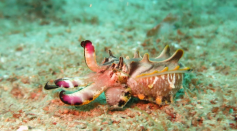
Marine Biologists Explain the Bright Colors of Flamboyant Cuttlefish

Scientists Successfully Sequenced Giant Squid Genome
Most Popular

How Technology Is Changing the Real Estate Industry?

How a Plant-Based Diet Can Protect Against Breast Cancer: Insights from Nutrition Research

Study Reveals High Turnover in Scientific Research Careers: What This Means for Future Scientists

Why It's So Difficult to Lose Weight: The Biological Explanation Behind Obesity

